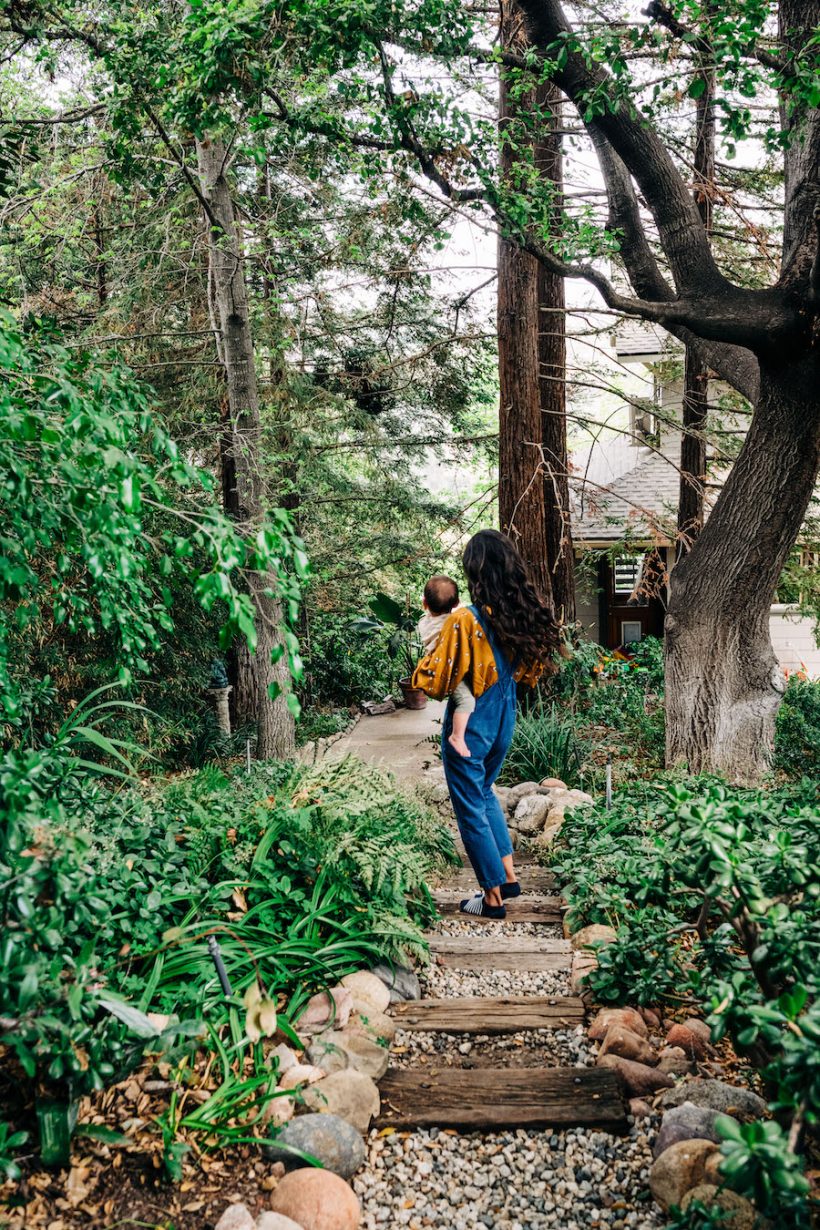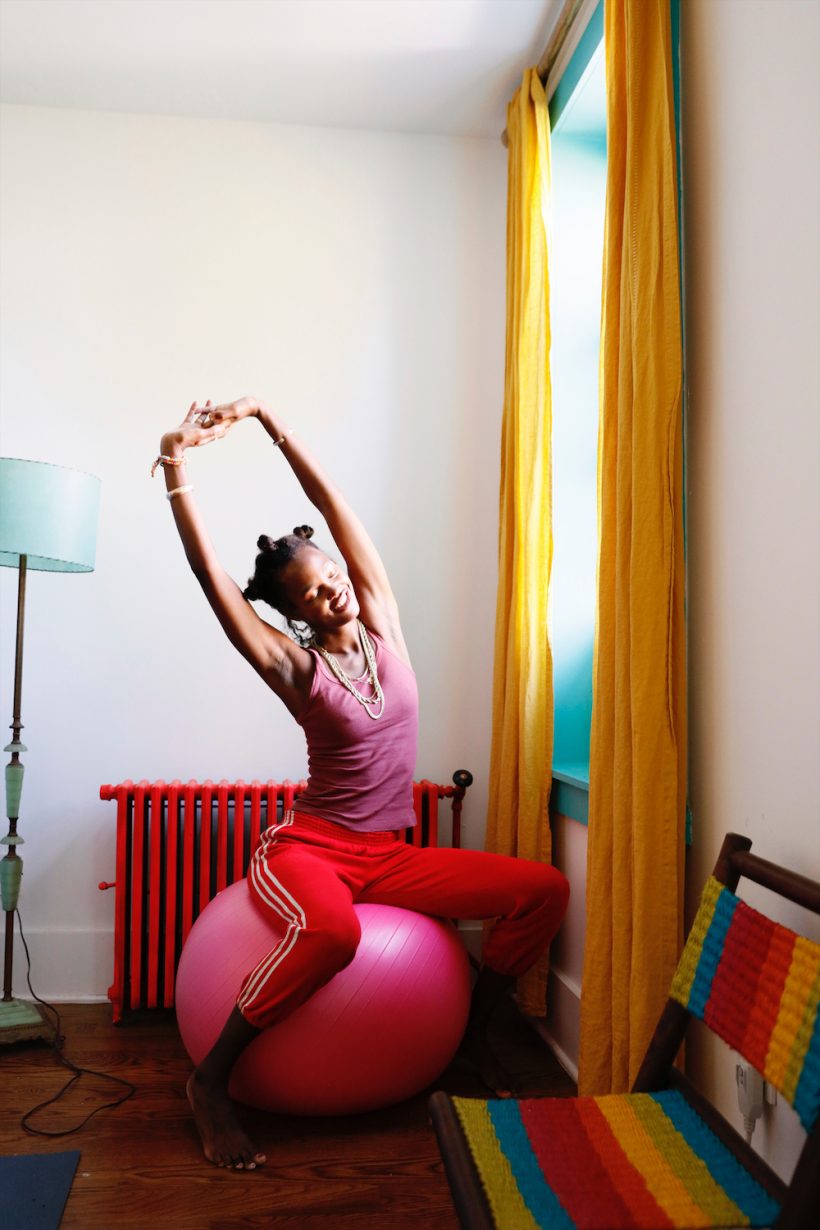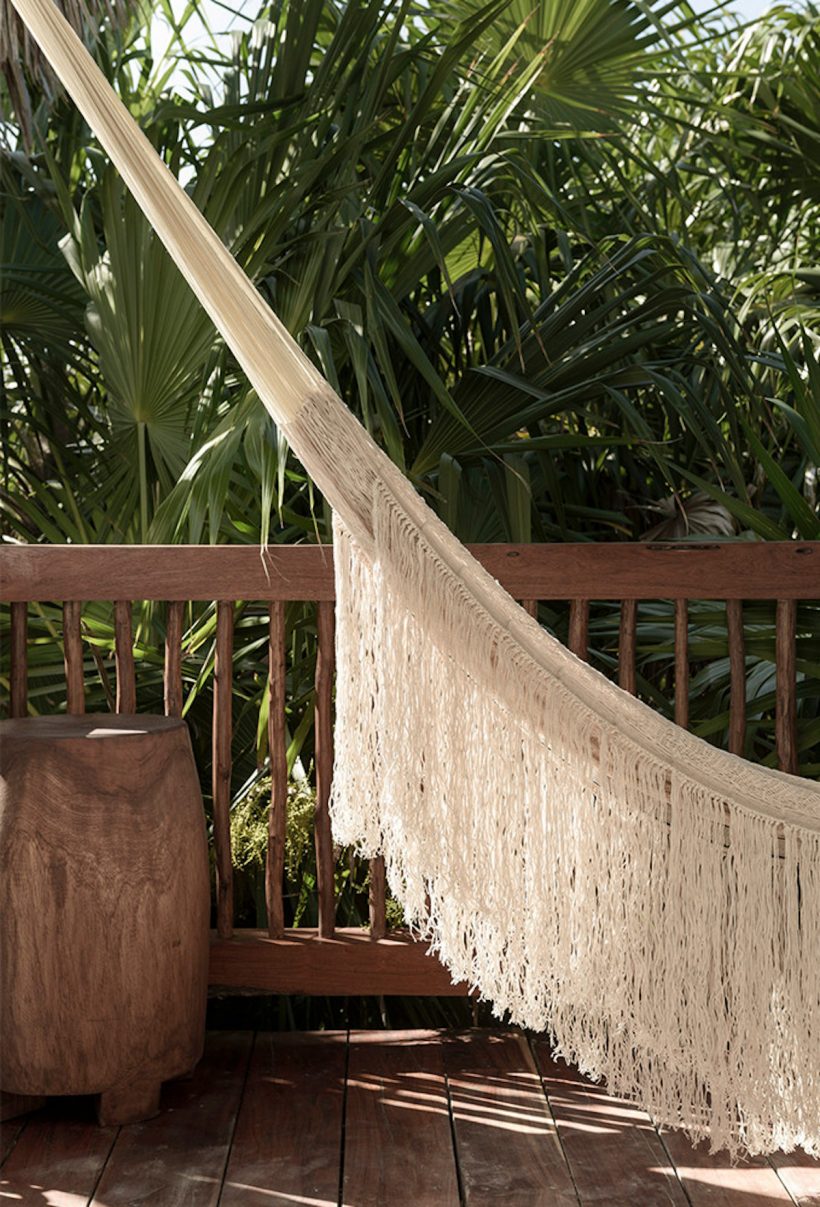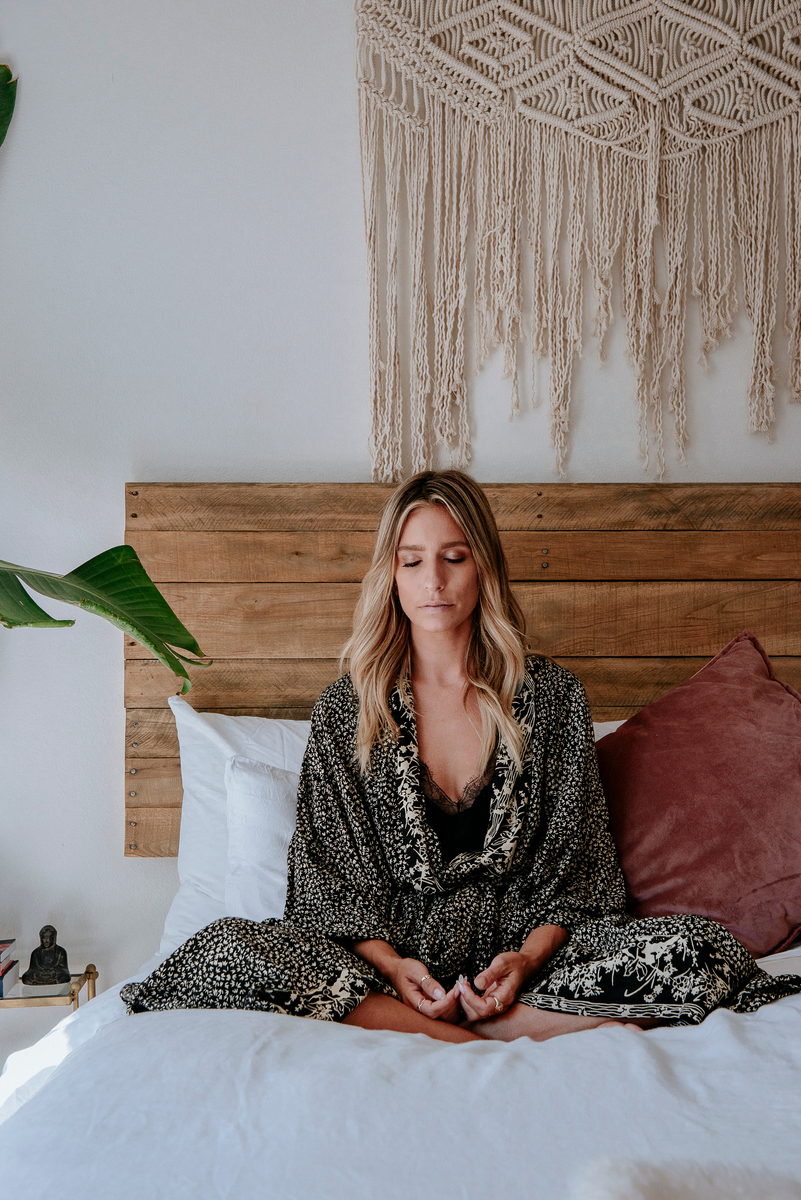
By the time you read this, I’ll be stretched out on a beach towel, deep into my latest memoir and fully relaxed by the crashing waves of the Pacific. Though it’s a busy time at work for both of us, Adam and I were able to squeeze in just a few days away with the kids during their spring break, so we packed up for the West Coast and blocked out time on our calendars for doing a whole lot of nothing–which is what we’ve been craving.
You know that feeling when you’re in the groove of work and life, getting ish done and juggling all the balls, when suddenly your brain screams that it needs a break? As someone who truly loves my job, it’s easy for me to be in go go go mode and not recognize the warning signs until they hit me like a ton of bricks. But there’s no question that the pandemic blurred the lines between work and home life, and especially for those of us who have stayed remote, it can feel like we’re always “on.” Although it sounds highly productive in theory, research shows that not taking regular, restorative breaks is not only a quick road to burnout–it also makes us less efficient and goal-oriented–not to mention, less happy.
In today’s gig economy, the reality for many is that time off equals unpaid time. Thought it’s not always easy, carving out mental breaks is crucial for our mental health and well-being. Even a short break can be restorative when we’re super intentional about how we spend it. And for those of us who are allotted a set amount of vacation time each year, statistics show that Americans don’t use all of their vacation days. And even when they do, they often fail to leave work at the office. It seems that many of us simply don’t know how to take a break from work.
I used to fall into that category, until I had a major burnout moment of my own a few years back. I realized that I was so distracted by work during my non-working hours, I was missing out on precious time with my family and friends. Even when I did take vacation, it wasn’t all that restorative because I was engaged in emails and text messages that kept me from being fully present. So, I decided to get really intentional about creating boundaries to protect that time as sacred.
The results were so game-changing, it revolutionized the way I’ve approached vacation time ever since. As I prepared for this week’s getaway and started my habitual OOO setup, it felt like time to share the ways I truly disconnect and get rejuvenated on my days off. So, scroll on to find out how to take a break from work–and why it’s crucial for both your productivity levels and your happiest self.
Taking a break cures decision fatigue.
Are you ever plowing through work, determined to get every last thing done on your to-do list, when suddenly you hit a mental block? One where your brain just can’t seem to focus or even function properly anymore? Turns out, there’s a biological reason called decision fatigue. Sustained mental attention depletes our mental energy when we don’t take breaks. Our pre-frontal cortex, the part of the brain responsible for logical thinking and willpower, actually becomes worn down and fatigued. The solve? Giving it a rest to replenish our energy.
It restores our excitement for our goals.
Have you ever been so enthusiastic about a new project that you talked yourself into biting off way more than you could chew? (Guilty.) Especially when you’re afraid of missing an exciting opportunity, it’s easy to overcommit–but after a few days of working around the clock, you’re hit with that mental block that I described above, and the momentum you started with has suddenly disappeared.
“Deactivating and reactivating your goals allows you to stay focused,” says psychology professor Alejandro Lleras in Psychology Today.
Taking high-quality breaks gives our minds the reset–or “deactivation”–they need to restore that original excitement.
Taking breaks sparks creativity.
This is a tough one for me, since I tend to get really focused on a task at hand and have to tear myself away from the computer screen when I’m ploughing through a writing project. But I’ve noticed that when I try to “power through” without breaks, the quality of my writing majorly suffers–and it actually slows me down, since after an hour of staring at my computer screen, the fresh ideas come more slowly and I end up having to scrap much of the writing that I did when my brain was fried.
Research shows that taking a walk sparks more creative, imaginative ideas than simply sitting and thinking. So lately, I’ve been setting a timer to force myself to get up and walk around the block, or even just walk into the kitchen to make a cup of tea, unload the dishwasher, or have a 5-minute conversation with Adam. The result? I return to my work with a fresh perspective. On a larger scale, taking a few days or more of vacation time gives our creative selves a full-on reset, and so often when I’m in relaxation mode, I’m able to think more expansively than when I’m in the day-to-day details of a workday.
So, now that you’re convinced you need a break…
Here’s how to take a break from work that’s truly restorative:
There are a few very specific habits I’ve put in place that help me squeeze the most juice out of my time away. Some of these, I created on that first “intentional vacation” I experienced–others I’ve added through the years to truly disconnect and get rejuvenated during my time off.
Fully unplug.
This is, without a doubt, my number one factor in whether I end a vacation feeling fulfilled versus feeling just as stressed as when I left. Those of us who are semi-addicted to productivity have to be even more intentional on this one. In a culture where even our downtime can be dominated by notifications, incoming messages, and covert glances at email, “out-of-office” doesn’t necessarily mean feeling refreshed.
So, here are the exact things I do to unplug when I go on vacation:
- Turn on my Out of Office notifications. Not only does this diffuse any guilt I might feel for taking a week to respond to someone, it also holds me accountable since I’ve found that most people actually don’t want you to respond to their emails when you’re taking a true vacation. And they just might call you out on it if you do.
- Turn off my incoming mail. Yes, I don’t even want to see my incoming email, because it’s that hard for me to ignore it and remember not to accidentally peek at it when I have downtime. To stop having your mail pushed to your phone on an iOS device, all you have to do is go into your Settings -> Accounts -> Your Mail Program -> toggle “Mail” to off. If your work requires you to be able to scan email for emergencies, you could turn off Mail on your phone, but leave it on an iPad or laptop, and allot yourself once or twice per day to scan your inbox at a pre-determined time.
- Delete any “problem apps” from my phone. A problem app is one that you instinctively look at, like a reflex, that can send you into an unintentional rabbit hole of content that you don’t want to be consuming during your time off. For me, this means Instagram. For you, it might be Tiktok, Facebook, or anything else that’s going to put your mind in hustle mode or make you feel bad.
- Turn on airplane mode or “Focus Setting” during the day. This might sound extreme, but there’s something so freeing about having your phone on airplane mode while you’re exploring a new city, getting on a surfboard, hiking through the mountains, or just separating yourself from your day-to-day reality. ‘Cause that’s what vacation’s all about, right? So, why not take a break from calls and texts for awhile by turning your phone on airplane mode and being actually unreachable–but still being able to use your camera. You can easily toggle it back on if you need to make a call or use Google Maps–it’s just a way to silence distractions for awhile.
- Let key people know how to reach me in case of emergency. I let a couple key team members know they can text me or Adam if they need something (but that I won’t be on Slack, Asana, or Email), and of course if we’re leaving the kids with our parents, we always set our phones to allow their texts or calls to come through to us.
Change your scenery.
Vacation versus staycation. I’ll be honest, I have a hard time totally disconnecting from work when taking a “staycation” at home. The sirens song of productivity is too easily accessed, and even if I’m not on my computer, the temptation to organize a closet or throw in a load of laundry is too tempting (I know, I have issues.)
And yes, a big vacation can be expensive, but even carving out a couple nights at an Airbnb in a charming small town getaway can make a major difference. Studies show that millennials are leading the “micro-cation” trend, making the most of even a long weekend by escaping somewhere that’s not their home, and getting creative with how to do it regularly on a budget.
If getting away is not in the cards due to budget, childcare, or something else, you can implement all of the “Unplugging” tips above, along with a few boundaries, and still make your time off really rejuvenating. Just be sure to carve in some time to…
Soak up nature.
We already talked about “changing your scenery,” and turns out, if your scenery is part of the natural world, even better. Studies reveal strong links between exposure to natural environments and recovery from mental fatigue. There’s something about being in a forest, by the ocean, or gazing at an expansive view like the desert, mountains, or a big starry sky that helps us put our lives in perspective and makes any stressors at work not seem so major anymore.
The older I get, the more I seek out experiences in nature as a focal point of any getaway. Carving out time each day for long walks, hikes, swims, and sunsets inspires me, makes me feel relaxed, and fills up my soul in a way that nothing else can.
Plus, experiencing this type of beauty with your family or a travel buddy is a bonding moment that you’ll both remember forever.
Meditate, breathe, daydream…
In other words, slow down your thoughts and step away from the goal-oriented part of your brain that’s focused on achievement. Carve out time in the morning for a 10-minute meditation, write in your journal what you’re learning about yourself during your time away, allow yourself to close your eyes and listen to music. Be totally present and realize that you can simply be here now–there’s nothing else you need to be doing in the moment. Humans are made to rest. Enjoy it!
How do you make the most of your time off to get restored?







